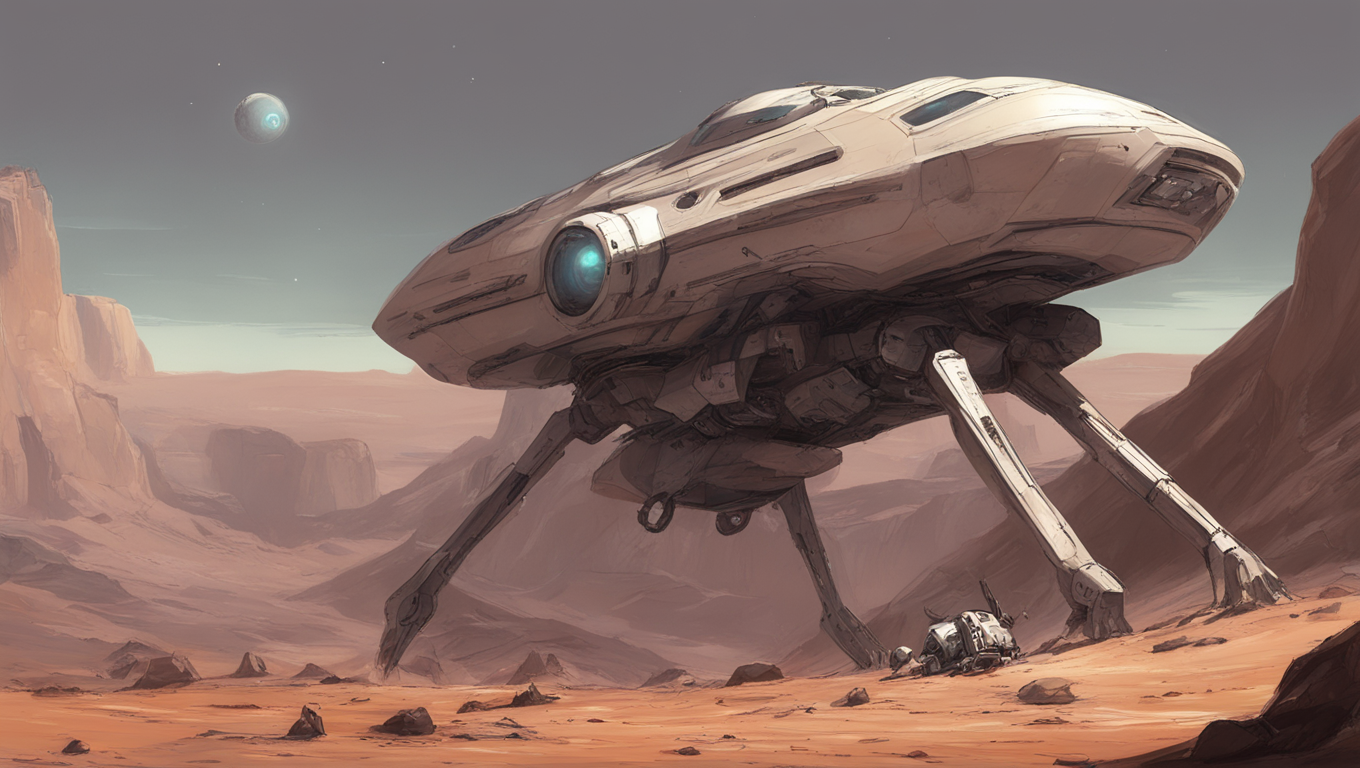Scientists are reaching for the stars with a new development in artificial intelligence (AI) software. Researchers at Carnegie Institution’s Geophysical Laboratory and George Mason University in the US have coded AI to detect and differentiate between living and non-living samples, with the ultimate goal of using this technology to search for intelligent life beyond our solar system.
The software, powered by machine learning, has been trained on carbon-rich examples from living cells and meteorites. By teaching the AI to distinguish between the two, scientists hope to enable the technology to examine data collected from spaceships equipped with smart sensors. These sensors would be capable of analyzing everything from rock samples to gas compounds, helping scientists to identify potential signs of extraterrestrial life.
The hunt for aliens has long fascinated scientists and the public alike. While Hollywood may have popularized the idea of aliens visiting Earth, the reality is that the search for life beyond our planet is a scientific endeavor. According to Dr. Andrew Steele, the lead researcher on the project, “One of the challenges in the search for extraterrestrial life is knowing where to look and what to look for. By using artificial intelligence to analyze various samples, we are hoping to develop a more efficient and targeted approach.”
This ground-breaking development is yet another example of the incredible advancements being made in the field of AI. From self-driving cars to virtual assistants, AI is becoming increasingly integrated into our everyday lives. However, the potential applications of AI go far beyond Earth-bound convenience. AI has the ability to assist us in exploring the vast unknown, unlocking mysteries of the universe that were previously unimaginable.
Elon Musk, CEO of Tesla, recently showcased the capabilities of AI in a different context. In a video posted on social media, Musk demonstrated Tesla’s humanoid robot, Optimus, confidently performing yoga poses. This demonstration highlighted not only the incredible advancements in robotics but also the potential of AI to enhance our understanding of the physical world.
As we continue to push the boundaries of scientific discovery, it is crucial to approach these advancements with a sense of responsibility and ethical consideration. The search for extraterrestrial life raises questions about our place in the universe and our connection to other intelligent beings. It is a pursuit that requires both scientific rigor and philosophical reflection.
In the words of Dr. Steele, “AI has the potential to revolutionize our understanding of the cosmos. But it is also a reminder of the limits of our knowledge and the vastness of what is yet to be discovered. In our quest for knowledge, we must remain humble and receptive to the answers we find.”
While the search for intelligent life beyond our solar system may still be a distant dream, the development of AI software to aid in this endeavor brings us one step closer. With each breakthrough in technology, we gain new insights into the universe and our place within it. And who knows, perhaps one day, the efforts of scientists and the power of AI will enable us to make contact with beings from distant worlds. Until then, we continue to explore, learn, and dream of what lies beyond the stars.





Use the share button below if you liked it.